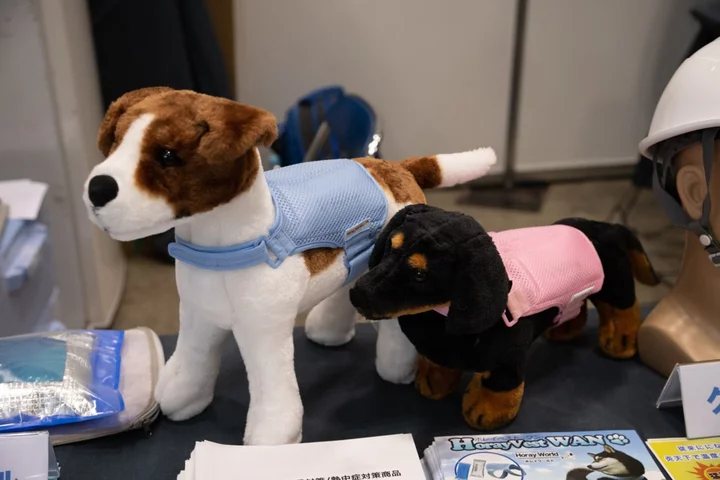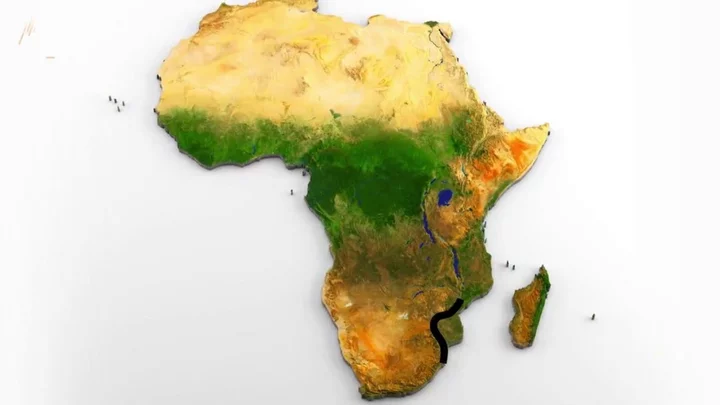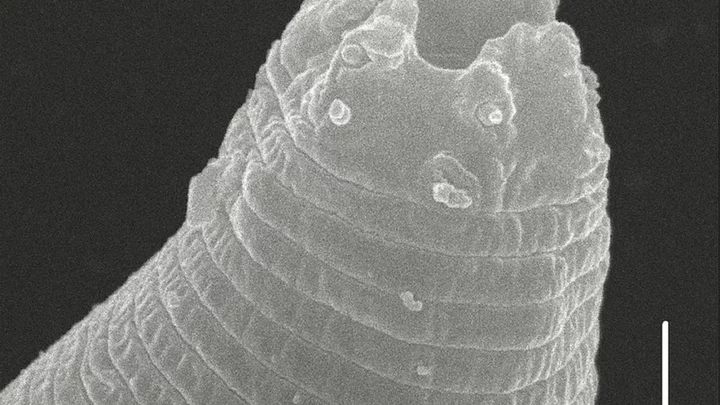
Foxconn unit to sign $194 million components plant deal with India's Tamil Nadu-source
By Munsif Vengattil and Praveen Paramasivam CHENNAI (Reuters) -A Foxconn unit will on Monday sign an agreement with India's Tamil
2023-07-31 13:24

China Stops Short of Direct Consumer Support to Spur Economy
China is seeking to boost consumption to spur the economy’s recovery, although the government has stopped short of
2023-07-31 12:26

Fan-Cooled Beds and Baby Carriers Are Gadgets to Beat Heat
As extreme heat blankets the globe from Phoenix to Athens, entrepreneurs are responding with an array of personal
2023-07-31 09:24

Musk draws heat from San Francisco over giant X logo
By Nicholas P. Brown A giant, glowing X marks the San Francisco spot where Elon Musk says he
2023-07-31 08:22

OceanGate founder now wants to send people to least hospitable planet in the galaxy
The co-founder of the OceanGate is now planning to send 1000 people to Venus despite the bad press the company has received following the doomed Titanic submersible trip in June which killed five people. Despite the tragedy, which saw the submersible implode killing everyone onboard, including the company's co-founder Stockton Rush, his colleague Guillermo Söhnlein is not deterred and has told Insider that he now has ambitions for space. According to Söhnlein he now wants to see 1000 people living on the surface of Venus, the hottest planet in the solar system, by 2050. The American businessman born in Argentina said: "I think it is less aspirational than putting a million people on the Martian surface by 2050. Sign up to our free Indy100 weekly newsletter "You're absolutely right that when you talk about going to Venus, it would raise eyebrows outside the space industry. And it even raises eyebrows inside the space industry." "I think I've been driven to help make humanity a multi-planet species since I was 11 years old, I had this recurring dream of being the commander of the first Martian colony." This all sounds well and good and after all Elon Musk has similar aspirations for Mars but Venus is an odd one as at this moment in time its one of the least hospitable planets in the galaxy. Aside from being the hottest planet in the solar system, as mentioned, its atmosphere is made up of greenhouse gases and its clouds contain sulphuric acid which make Venus so hot that temperatures can reach 475 °C. Regardless of this, Söhnlein thinks it is "very doable" that a floating space station could withstand the harsh conditions on Venus but will likely be met with skepticism. Söhnlein's Humans2Venus project has been co-founded with researcher Khalid Al-Ali and will strive to develop technologies that will reduce launch costs and fund space projects without government money. Have your say in our news democracy. Click the upvote icon at the top of the page to help raise this article through the indy100 rankings.
2023-07-30 16:15

New ocean discovered that is beginning to split Africa in two
Since the break up of Pangea that formed the world, we have been taught that there are seven oceans. But now, scientists believe a brand new ocean is currently forming as the continent of Africa is slowly beginning to split in half. Researchers have found two large parts of the land within Africa have begun to separate and it's believed a whole new ocean will form in the divide. Africa is the second-largest continent in the world, with a landmass of more than 30 million square kilometres, and is also the second-most populous. Many of its 54 countries are landlocked, however for some that could be about to change. Geologists believe countries such as Uganda and Zambia could come to have their own coastlines if the two land masses continue to separate. In the peer-reviewed journal, Geophysical Research Letters, experts have confirmed that the split in the African continent is creating a way for a new ocean to form. Sign up to our new free Indy100 weekly newsletter Scientists have identified the exact location where the continent first started to split, very deep underground. The crack first began to appear in 2005 in Ethopia’s deserts. The crack is known as the East African Rift and is 35 miles long. The start is positioned at the meeting point of three tectonic plates which have been gradually pulling apart from each other. Christopher Moore, a Ph.D. doctoral student at the University of Leeds, told NBC News: “This is the only place on Earth where you can study how continental rift becomes an oceanic rift.” Moore and other researchers have used satellite radar to monitor the volcanic activity in East Africa as this is associated with tectonic shifts. Despite being able to monitor movement, the split is a very gradual process, and scientists believe it will take another 5 to 10 million years for the new ocean to fully form. Have your say in our news democracy. Click the upvote icon at the top of the page to help raise this article through the indy100 rankings.
2023-07-29 23:57

China Moves to Bolster Consumer Industries, Grow Fledging Bourse
China issued more measures to bolster economic growth, including a plan to boost consumer industries and steps to
2023-07-29 15:59

US Military Footprint in Australia Expands to Counter China
The US and Australia reached an agreement to expand the US military footprint on the southern continent, as
2023-07-29 14:18

Fact check: RFK Jr.'s misleading viral claim about Secret Service protection
Robert F. Kennedy Jr., who is running for the Democratic presidential nomination against President Joe Biden, baselessly suggested Friday that the Biden administration is singling him out for rare treatment by denying him Secret Service protection.
2023-07-29 08:25

Experts resurrect parasite after 46,000 years in Siberian permafrost
Scientists have resurrected a parasite which has been dormant in the frozen permafrost of Siberia for 46,000 years. The microscopic creatures were first uncovered as part of a remarkable discovery back in 2018. At the time, researchers led by Anastasia Shatilovich found two of the worms in sub-zero temperatures in the soil. At first, it was previously thought that the creatures could stay in their slumber for just 40 years. However, it was later revealed that they could stay inactive for tens of thousands of years. Sign up to our free Indy100 weekly newsletter The creatures tend to shut down their systems when they are in unfavourable conditions. This means they won’t move or reproduce, and their metabolism stops. Carbon analysis has revealed that the worms – also known as nematodes – came from a prehistoric era. The developments could change the way experts approach bringing back other extinct species, too. During an analysis, the research team discovered the worms were Panagrolaimus kolymaensis - a species that was previously thought to be extinct. The scientists wrote in their paper: “Previously, we had shown that nematodes from the Siberian permafrost with morphologies consistent with the genera Panagrolaimus and Plectus could be reanimated thousands of years after they had been frozen. “Several viable nematode individuals were found in two of the more than 300 studied samples of permafrost deposits spanning different ages and genesis.” It’s not the only thing that scientists have recovered from permafrost, either. It was announced earlier this year that scientists are busy working on reviving 'zombie viruses’ that have been lying dormant for tens of thousands of years in Arctic conditions, and while it sounds absolutely terrifying, it could be important when it comes to protecting us all in the future. Have your say in our news democracy. Click the upvote icon at the top of the page to help raise this article through the indy100 rankings.
2023-07-28 19:23

China Bulls Look for Redemption as Beijing Shows Policy Resolve
A rally in Chinese stocks is gathering steam as early signs emerge that authorities are acting on the
2023-07-28 15:47

Toyota Car Sales, Output Hit Record in June; China Retreats
Toyota Motor Corp. manufactured and sold a record number of vehicles in June as operations continued to recover
2023-07-28 15:20
